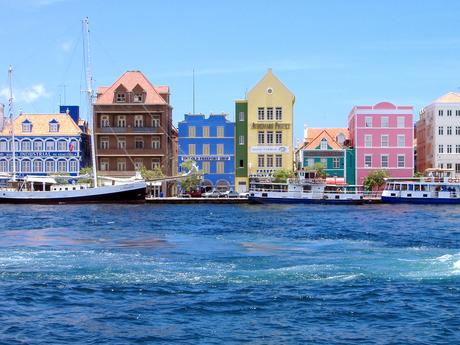
Curacao, Dominican Republic
In September of 2013, a law was passed in the Dominican Republic that effectively caused mass deportation and displaced countless Haitians. The law ruled that children born in the DR to non-citizens didn’t qualify for citizenship because their parents — mostly Haitians — were “‘in transit,'” as the US News & World Report put it. While the Dominican Republic has claimed that the purpose of this law is to control immigration, it seems it actually stems from a long legacy of anti-Blackness in the Dominican Republic.
Race in the Dominican Republic is relatively complex. While studies show that the majority — about 73% — of Dominicans are mixed race, like the people of many other former European-controlled colonies, Dominicans have long prized whiteness and denied their African roots. In the 1930s, for example, while the dictator Rafael Trujillo was in power, the option to identify as “black” on a new national identity card was eliminated and other anti-Haitian sentiments were rampant. Even today, dark-skin Dominicans are referred to as “negro/negra” or “moreno/morena” — epithets meant to be insulting and diminish one’s self-esteem. This mentality is evident in the prevalent refrain many old school Dominicans repeat to their children: “Don’t marry a black girl/boy.”
I began to learn about this history and what it means for my own identity as an Afro-Latina about a year ago. I had always struggled to pinpoint my ethnic identity — whenever I confirm that I identify as black, for example, I get weird looks or people look at my caramel skin and flat out say, “You’re not black.” Even so, I always proudly said I was an Afro-Latina born to Dominican parents on the island of Curacao. Learning about this mass deportation has just puzzled me even more, though, and I’m now most likely to tell people I am from Curacao and that my parents are Dominican.
While I struggle with what my identity is, I recognize what it isn’t: Though I identify as a black woman living in America, I cannot (and do not) equate my experience with race to the experiences of many darker skinned African American women, who are subject to a wide scope of biases, experiences and prejudices that I will never experience. It’s undeniable that in the current racial hierarchy, my lighter skin and looser curls may provide me with advantages in certain situations. But I do feel that my experiences as an Afro-Latina may overlap with those of African American women in certain ways. Although she is referring to African American women, Cecilia Conrad describes an experience to which I certainly relate in an article entitled “Black Women: The Unfinished Agenda.” “We [African American women] are discriminated against because we are black,” she wrote. “We are discriminated against because we are women. We are discriminated against because we are both.”
I can never erase the fact that I am Dominican and the black part of my ethnicity is not a part of which I am willing to let go just because my Dominican culture does not acknowledge or promote it. This identity is in my blood, my hair and my complexion. But acknowledging this identity doesn’t prevent me from also recognizing that the legislation against Haitians in my country is embarrassing and sad. I hope in the future we begin to educate our younger generation about their African roots and move forward towards a more equitable society.

